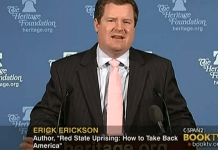On Wednesday, the World Health Organization (WHO) made an important decision to authorize a new vaccine against dengue, a disease spread by mosquitoes that has caused numerous outbreaks in the Americas this year.
Dengue is a serious illness transmitted to humans by mosquitoes. It can lead to severe symptoms, such as internal bleeding, organ failure, and sometimes death. It is prevalent in about 120 countries in Latin America and Asia.
The WHO has approved a vaccine developed by a Japanese pharmaceutical company called Takeda. This vaccine, known as Qdenga, is recommended for children between six to 16 years old who live in regions where dengue is common. It requires two doses and protects against all four types of the dengue virus.
Studies have shown that Takeda’s vaccine is about 84% effective in preventing hospitalizations due to dengue and about 61% effective in preventing dengue symptoms.
Rogerio Gaspar, WHO’s director for approvals of medicines and vaccines, emphasized that this approval is a significant step in expanding global access to dengue vaccines. This is the second vaccine authorized by WHO for dengue prevention. The first vaccine, made by Sanofi Pasteur, was later found to increase the risk of severe dengue in individuals who had not previously been infected with the disease.
Recently, there has been a sharp increase in dengue cases in the Americas. Last week, WHO reported 6.7 million suspected cases of dengue in the region, which is a 206% increase compared to the same period in 2023. In response to the outbreak, Rio de Janeiro declared a public health emergency, and Brazil began rolling out the Takeda vaccine, aiming to vaccinate at least 3 million people.
The approval of Takeda’s vaccine means that donors and other UN agencies can now purchase the vaccine for poorer countries, where dengue outbreaks are a major health concern.
WHO has stated that cases of dengue have increased tenfold over the past generation, partly due to climate change and the expanding range of mosquitoes that carry the disease. Dengue outbreaks are expected to worsen with climate change, making the development of effective vaccines even more critical.
In conclusion, the approval of Takeda’s dengue vaccine by WHO is a crucial step in the fight against this mosquito-borne disease. The vaccine’s effectiveness in preventing hospitalizations and reducing symptoms provides hope for controlling dengue outbreaks globally. With the ongoing climate change and increasing mosquito populations, the need for such vaccines is greater than ever. The global health community, including governments and international organizations, will continue to work towards making these vaccines accessible to all regions affected by dengue.























